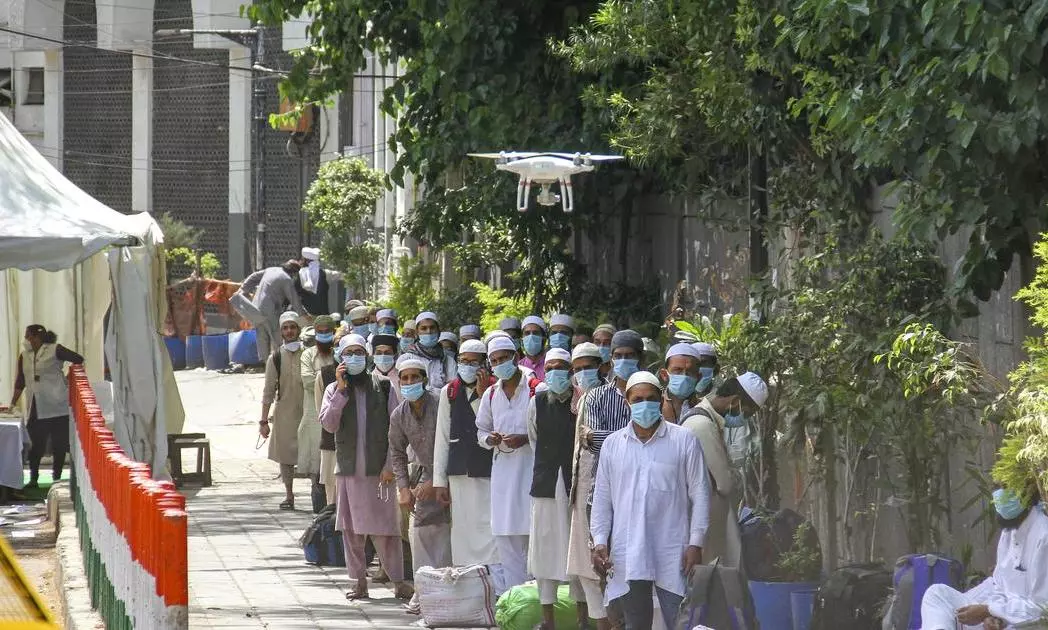
Court directs police to release passports of 35 foreigners acquitted in Tablighi Jamaat case
text_fieldsSource: PTI
A Delhi Court has instructed the police to release 35 foreign nationals' passports, acquitted in December for attending the Tablighi Jamaat Congregation at Nizamuddin Markaz in March 2020, allegedly violating the protocols issued by the Government in the wake of the pandemic on Saturday.
The court acquitted foreigners from 14 countries of all charges in December 2020, noting that the prosecution had failed to prove their attendance at the Markaz from March 12 to April 1. The court also discarded allegations of 'negligence', noting that none of the accused had any symptoms. Additionally, the court slammed the Investigating Officer for identifying 952 foreign nationals out of 2,343 persons purely based on a list provided by the Ministry of Home Affairs without a test identification parade.
The police have not filed any appeal to the acquittal. Instead, on Wednesday, the Delhi police ordered the removal of Look Out Circulars (LOC) issued against the foreigners while the investigating officer submitted that he had no objection to releasing the passports.
In the order, the court noted, "…Considering the facts that the accused have already been acquitted by the court vide judgement dated December 15, 2020, non-filing of any appeal/revision by the state against the judgement dated December 12, 2020, of this court till date and that the LOC(s) qua the applicant(s) have already been closed by the DCP pursuant to the directions of the Supreme Court of India, the application of the present applicant(s) is disposed off with the directions to release the original passport(s) of the applicant(s) to the applicant(s) or his/her (their) attorney against proper acknowledgement as per rules, after verification of his/her (their) identity."
The directive comes following an appeal made on behalf of the foreigners quoting the Supreme Court's directive to the Government on January 13 to facilitate the return of the acquitted to their respective countries.























